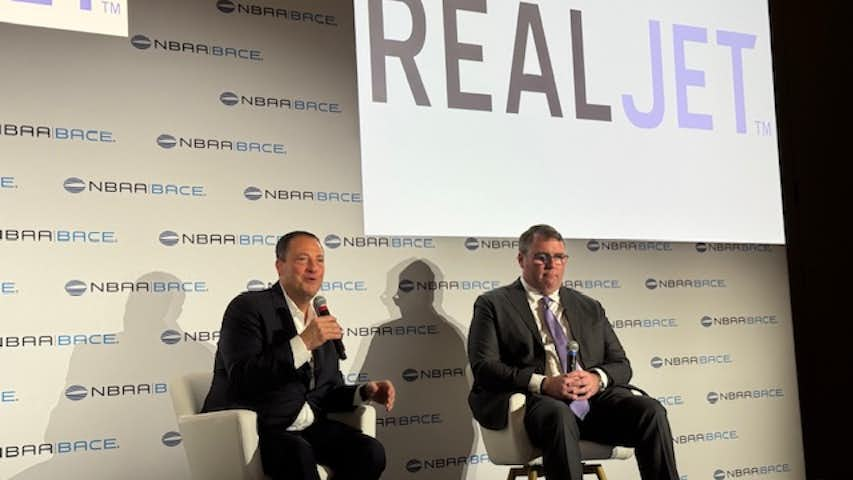

Each month there are over 50,000 unique online searches for both NetJets and Wheels Up. While each play in the consumer solutions sector of the private aviation space, their differences underline something that is often surprising to many, and that is there are significant differences between the various providers.
NetJets traces its history back to 1963, although it didn’t come to prominence until the 1990s when former CEO Richard Santulli invented the concept of fractional ownership putting the company name into the lingo of country clubs and boardrooms across the country, and eventually in Europe. He also attracted Warren Buffett not only as a client, but as an owner via Berkshire Hathaway which includes Dairy Queen, Duracell and Geico generating $245 billion in revenue during 2017.
Sister company Executive Jet Management is one of the largest management companies in business aviation, managing aircraft for UHNW individuals and companies. NetJets didn’t sell jet cards directly until 2010 when it purchased Marquis Jet Partners, which was founded in 2001 and sold jet cards by buying shares from the NetJets and then dividing them into 25-hour slices.
Compare over 250 jet card programs by 65 variables in 1 place here
Wheels Up was founded by Kenny Dichter who also launched Marquis Jet Partners after convincing then NetJets CEO Santulli he could expands the market for private aviation by offering the NetJets product packaged in 25 hours cards. The minimum commitment to buy a share or lease is 50 hours per year and typically requires a 60-month commitment. After selling to NetJets, Dichter came back onto the seen in 2013 with Wheels Up.
In his second incarnation, Dichter offered two new twists. Wheels Up introduced the pay-as-you-go jet card. Instead of requiring a six figure deposit, you paid an initiation and membership fee and then paid for each flight on a trip by trip basis, yet still were able to get fixed rates and guaranteed availability. He also embraced turboprops in the form of the King Air 350i branding it as the Jeep of private aviation. As he did with Marquis Jet Dichter painted private travel as a lifestyle which enabled you to get home for your kid’s soccer game and interspersed it with celebrity endorsements and VIP hospitality at big events like the Super Bowl and The Masters.
Wheels Up is privately held and in October 2017 raised $117 million in equity led by Fidelity Management & Research Company and funds and accounts advised by T. Rowe Price Associates, Inc. It followed $90 million in debt financing for aircraft by KKR. At the time Wheels Up said its valuation was $700 Million with enterprise value over $1 billion.
NetJets fractionally owned fleet is estimated at around 600 aircraft not including Executive Jet Management which adds about 150 more aircraft. Its CEO Adam Johnson said the company has taken delivery of 230 new jets in the past four years and recently said it intends to order up to 325 Cessna Longitude and Hemisphere private jets.
Current fleet includes the Embraer Phenom 300 and the Citation Excel/XLS, which NetJets categorizes as a light jet although it technically is a midsize aircraft. In the midsize category, there is the Latitude and Sovereign, and in the super midsize is the Citation X, Longitude and Challenger 350. When it comes to large cabin private jets, NetJets offers the Dassault Falcon 2000, Gulfstream G450, Challenger 650 and the Bombardier Global 5000 and 6000.
Wheels Up owned fleet of about 100 aircraft with approximately 80 King Air 350i twin-engine turboprops that seat eight, the Citation Excel/XLS and Citation X, the latter which has a cross country range.
When you include Executive Jet Management, NetJets covers essentially all aspects of consumer facing business aviation products. NetJets offers fractional shares and leases, typically ranging from 30 to 60 months starting at 50 hours but ranging into the thousand hour range for corporate clients who use it either for supplemental lift to their corporate flight departments or in some cases an outsourced solution. It sells jet cards in 25 and 50 hour increments on aircraft types where it has excess capacity, which means the jet card selection changes from time to time. Currently the smallest aircraft in its jet card program is the Citation Excel/XLS which is technically a midsize aircraft.
NetJets has two types of cards, its Marquis Jet cards which don’t include fuel surcharges and the 7.5% Federal Excise Tax in quoted rates and the NetJets Elite card which is inclusive of each. The Elite cards also have longer lead time for reservations and more peak days. There is also an X-Country Card which provides longer range aircraft for flights over 3.5 hours. Its Gulfstream GIV card is one of the few ferry free jet card solutions. The starting price for a jet card from NetJets is $209,000 for 25 hours in the Marquis Jet Excel/XLS program. NetJets doesn’t offer turboprops.
Wheels Up sells memberships, with its core membership being for individuals and familes priced at $17,500 in the first year ($8,500 to renew) and for corporations $29,500 ($14,500). You can actually buy a membership through Costco, part of Dichter’s drive to democratize private jet travel.
Once you join, you can reserve flights on either the King Air 350i ($4,695 per hour, not including FET) or Citation Excel/XLS ($7,695 per hour, not including FET). You can deposit money to reduce the number of peak days where availability isn’t guaranteed. While it’s building up its Citation X fleet, there is no fixed hourly rate.
Wheels Up in December said it is getting ready to introduce a light jet program off-fleet that will be rolled out in early 2019. The move will fill a gap for those of you traveling alone or with two or three other people on north-south flights like New York and Boston to South Florida. Those routings are on the long side for the King Air and unless you need the space, can be handled more efficiently on true light jets as opposed to the Excel/XLS. It’s expected the hourly rate for the Wheels Up light jet program with be under $6,000 per hour making it competitive with Sentient Jet, Delta Private Jets and the multitude of players in the card space that offer like programs.
Expect Wheels Up to work down the pyramid. Dichter has said the company will offer new memberships at lower price points designed to attract more users to private aviation.
While there might not be much in common between NetJets and Wheels Up when it comes to ownership structure, fleet type or what they sell, safety is one area where both companies have a lot in common. NetJets has achieved IS-BAO Stage 3, Argus Platinum and Wyvern Wingman, a trifecta of the highest ranking of third-party rating agencies. Wheels Up doesn’t operate its fleet, but it has contract flying
A commonality of NetJets and Wheels Up is the consistency of the aircraft they offer, from configuration and interior design to even exterior branding. That will change when Wheels Up goes off fleet with its light jet card.
Most of all, it’s interesting that both companies are the most searched among the plethora of companies that sell consumer private aviation solutions in that they are really quite different, Wheels Up appealing in large part to that customer who is open to flying turboprops, making under 500-mile flights. NetJets, on the other hand, can fly you cross country at a fixed rate and anywhere on Planet Earth. Both have very friendly programs when it comes to short-haul flights, with 60-minute daily and segment minimums. They also both include deicing, which can be a significant expense if you do a lot of winter weather flying. Yet at the end of the day, each is really targeting a somewhat different customer.
Quick Compare Flight Pricing enables you to compare actual all-in flight costs in seconds